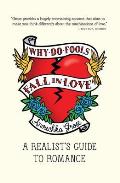 lonelyheart: What's your feeling on "playing hard to get." Antiquated and silly, or a smart strategy?
lonelyheart: What's your feeling on "playing hard to get." Antiquated and silly, or a smart strategy?Anouchka: Dear lonelyheart,
Is it too annoying to say both? It's a silly, antiquated, smart strategy.
Of course women shouldn't have to defend their modesty any more, pretending not to be interested in sex if they want men to treat them well. But that's not the only reason for playing hard to get. Especially when you take into account the fact that men can do it too.
Perhaps it's more a question of whether you think honesty or tactics will get you further in love. If your ideal is to be able to speak freely, express feelings and let the other person in on every aspect of your being, then acting cool will be an anathema to you. However, if you choose this mode of operation you will lose quite a few people at the first hurdle — they will simply find you too intense. Still, you may decide that this is for the best; it's wise to give those people a chance to fall by the wayside before you get too attached to them. By being upfront from the start you save yourself, and them, a lot of bother.
At the other extreme, you may believe it's wise to make yourself appear as self-contained and non-needy as possible. That way, in theory, you will allow people to show an interest in you without risk of their being consumed by your overwhelming interior life. You will become an enigmatic, fascinating entity and they will fantasize about you wildly. Thanks to your alluring façade, they will run towards you, rather than away. The problem here is that it can be hard to sustain the performance. Once you've got them interested, are you seriously going to keep up the Sphinx act? Or will you let them see that you are actually human too? And when they realize this, will their fantasy fall apart, causing them to leave you?
The most popular means of negotiating these two extremes is to try a bit of each. Give the other person something to go on so that they don't think it's completely hopeless to ask you out. But don't let them see immediately that you are a vulnerable person who's desperate to be loved. By playing it down the middle you allow space for the other person's fantasy/desire/curiosity, as well as giving yourself license for a certain degree of freedom of expression. With luck, and skill, you will be able to keep up the balancing act for years — even to the point of living "happily ever after."

Artwork: John Sibbick
Via
britishmuseum.orgHaving said all that, playing "hard to get" has traditionally been the remit of women. At least it's something that we have often been advised to do. In order to back up this idea there are any number of hoary old clichés, culled from the clutter of psychology, sociology, evolutionary theory, etc. Men are hunters and like to chase. Women want to trap men in order to make them breed. Men like to be free agents so they can spread their seed. Women are clingy and emotional, but their capacity for attachment is what enables them to be mothers. And so on until everyone is bored enough to lapse into a coma. And out of all this generalizing claptrap comes the idea that, if women want men to like them, they shouldn't behave like "women." Instead of openly trying to tie the guy down, they should learn to dissemble. If they pretend that marriage and babies are the last thing on their minds, the wild caveman-hunter of their dreams will fall into their trap.
 One of the most pervasive contemporary manifestations of this myth is John Gray's Men Are from Mars, Women Are from Venus. In it he advises women to give men more space, not to expect them to talk too much, and to generally be there when they are needed and to back off when they aren't. I have total sympathy for blogger Susan Hamson's take on all this when she explains in her excellent Rebuttal from Uranus that he's just dishing out more patriarchal crap.
One of the most pervasive contemporary manifestations of this myth is John Gray's Men Are from Mars, Women Are from Venus. In it he advises women to give men more space, not to expect them to talk too much, and to generally be there when they are needed and to back off when they aren't. I have total sympathy for blogger Susan Hamson's take on all this when she explains in her excellent Rebuttal from Uranus that he's just dishing out more patriarchal crap.
Still, the fact that forty million people read John Gray's book would suggest that you probably can't dismiss it out of hand. He seems to be describing phenomena that people can relate to. It's something worse than "antiquated" — apparently there are millions of years of human development lurking behind your thorny question. But what are we best advised to do about it? Get on with manipulating each other according to sexual stereotype? Or try to ask questions about what we might be able to do instead?
Lonelyheart, I know you know what to do...